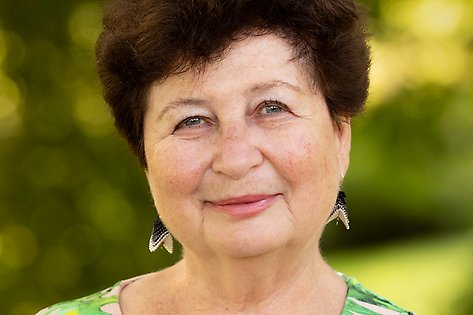Groundbreaking research into psychedelic therapy

Psilocybin, den aktiva substansen i så kallade psykedeliska svampar, har i tidigare studier visat sig ha en betydande positiv inverkan för patienter med obotlig cancer. Foto: Pixabay
Patients with severe and progressive diseases often suffer from depression, anxiety and psychological distress towards the end of life. Now, a European consortium has been awarded €6.5 million to investigate whether the psychedelic drug psilocybin can lead to improved palliative care.

Inna Feldman, docent i hälsoekonomi.
PsyPal, as the study is called, is coordinated by the University Medical Center Groningen, the Netherlands, and is the first of its kind to receive EU funding. Uppsala University is one of the institutions participating in the study.
Inna Feldman, Docent of Health Economics at the Department of Public Health and Caring Sciences, will contribute her expertise to the project.
“This is the first study in Europe to explore this type of treatment for end-of-life patients. The aim is to determine whether patients with advanced Chronic Obstructive Pulmonary Disorder (COPD), MS, ALS and atypical Parkinson’s can achieve a better quality of life with psilocybin therapy. It’s about helping patients live as well as possible, for as long as possible,” says Inna Feldman.
Declined quality of life
Among patients in the end stages of life, it is not uncommon for their quality of life to decline due to anxiety, depression, and psychological distress. Psilocybin, the active substance in so-called psychedelic or ‘magic’ mushrooms, has shown significant positive effects for patients with terminal cancer in previous studies.
“Applications for similar studies have been underway before, but have not received funding because the health economic aspect was not included as part of the study, which is now my and Uppsala University’s role in this.”
Can you describe your role in the project?
“The idea is that four participating countries will collect a total of 100 patients with one of these diseases. One group will receive psilocybin treatment, and one group will receive a placebo. We will assess the patients’ and relatives’ perceived quality of life at the beginning of the study and then at intervals during the study to determine whether the health benefits outweigh the cost of therapy. If we want to proceed with this type of therapy, cost-effectiveness is a must,” says Inna Feldman.
Health economic effects
The hypothesis is that patients will experience reduced depression, distress, and anxiety to such an extent that it justifies the cost. Further hypothesis are that even the relatives will feel better, and that the patients’ need for care will decrease, which is another health economic effect.
“In short, if the patients feel better, they will require less hospital care. Based on previous studies, we believe these patients will need less care, resulting in reduced consumption of societal resources. Our health economic analysis simply aims to balance three parameters: health benefits, treatment costs, and potential gains in reduced healthcare needs. If the benefits are reasonably proportional to the costs, such treatment would be a good alternative from a health economic perspective.”
The study will last three years, and over 19 countries and organisations are involved.
“It’s a very interesting study, and it will be exciting to be part of it. Collaborating, not only across research disciplines, but also with other countries is fascinating. Being able to contribute our knowledge in health economics feels very inspiring,” concludes Inna Feldman.
Robin Widing
